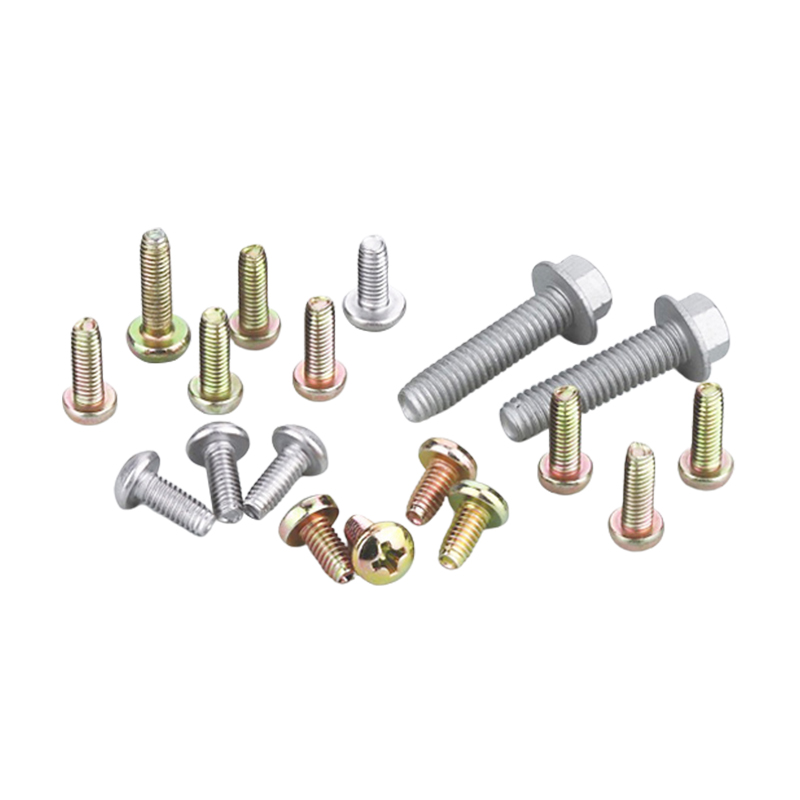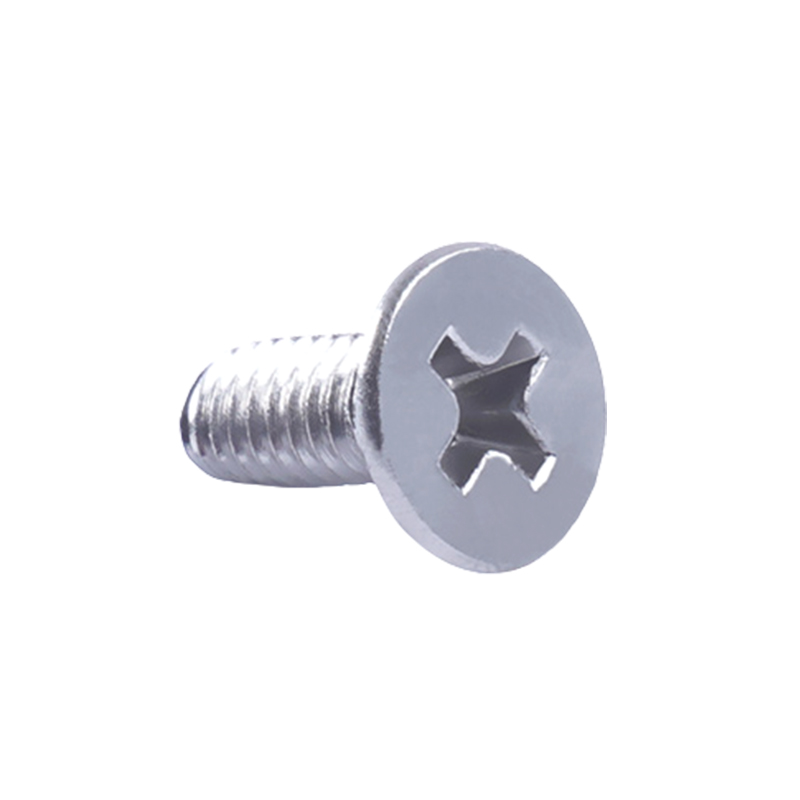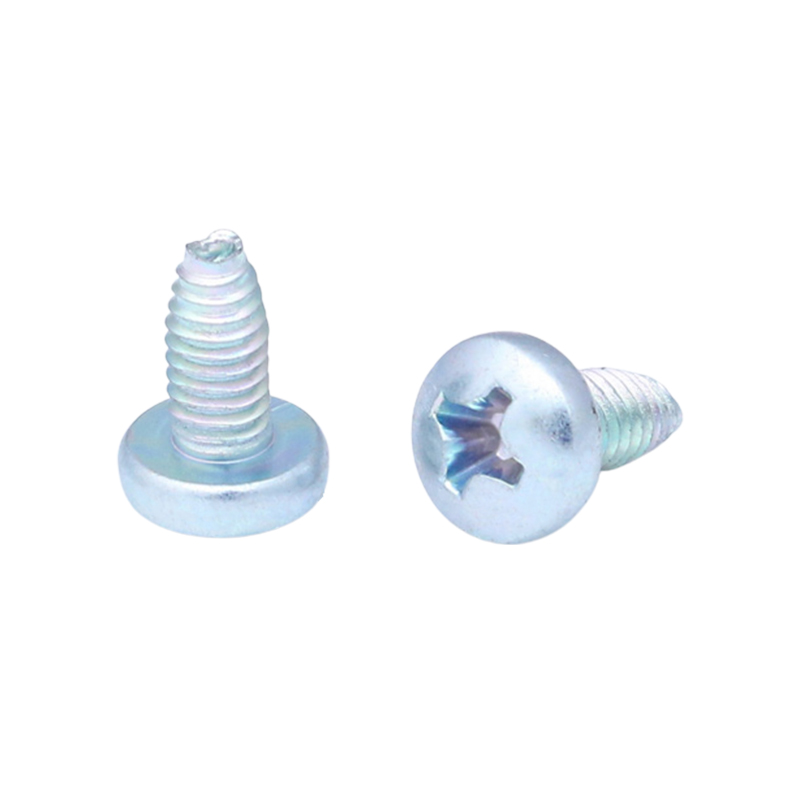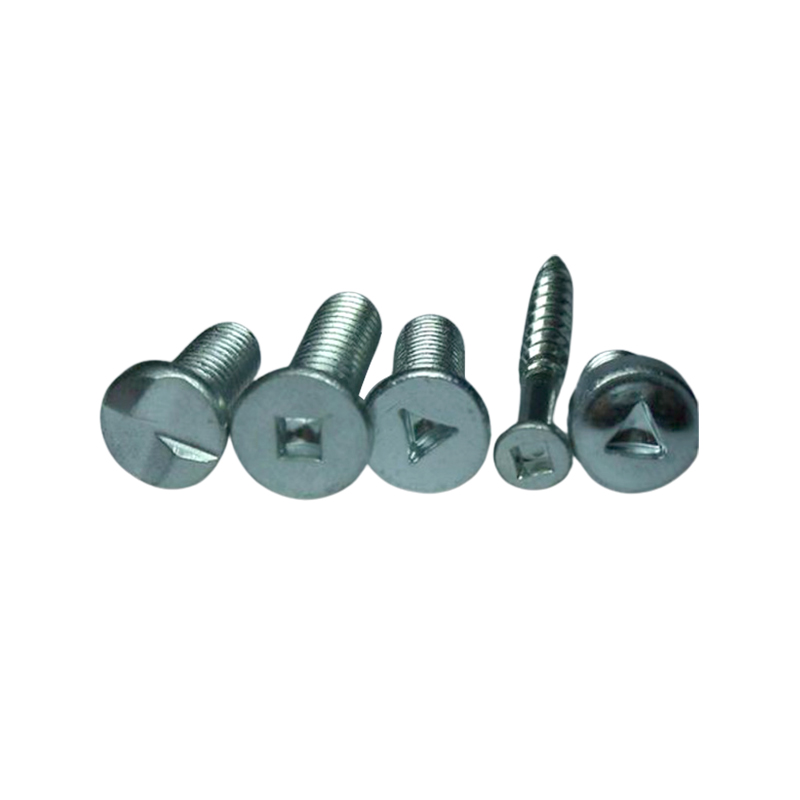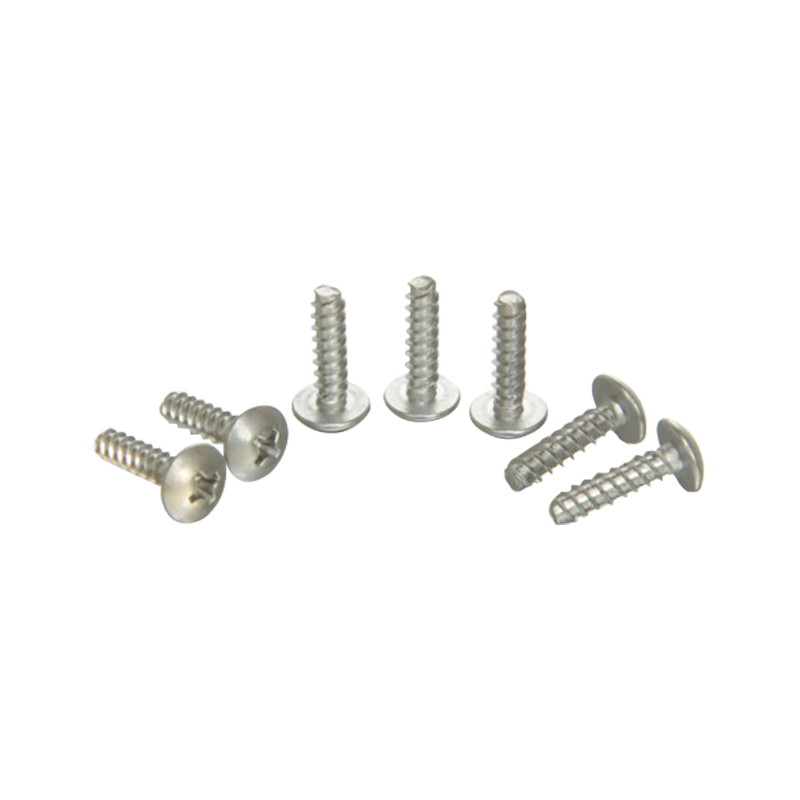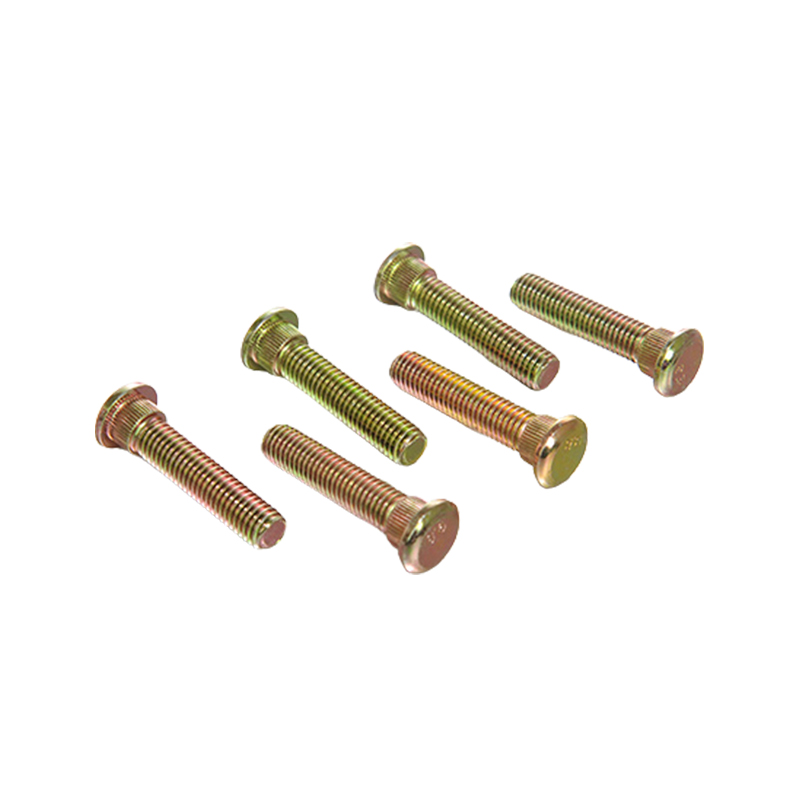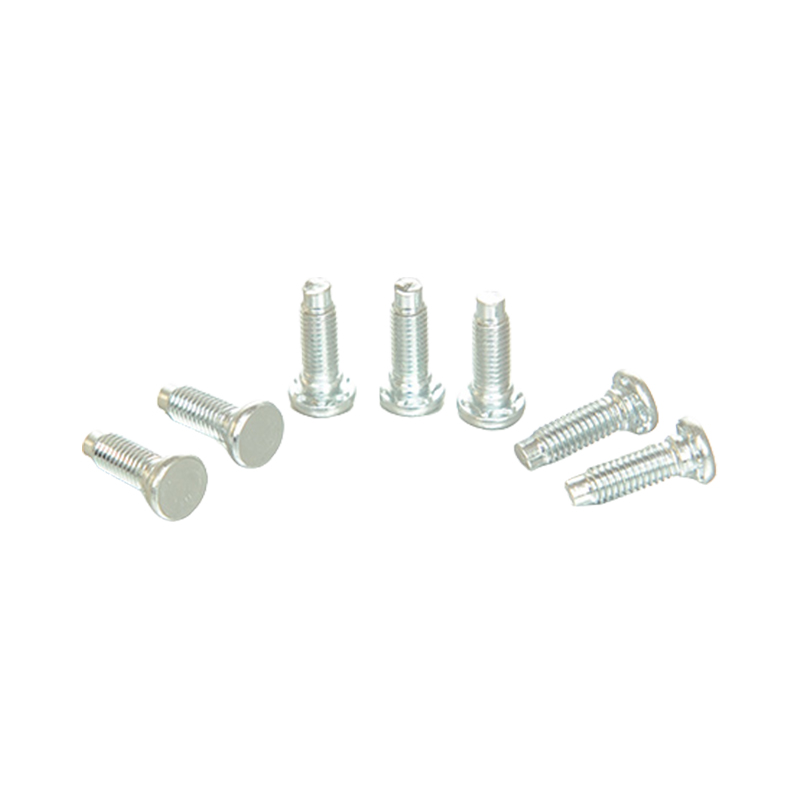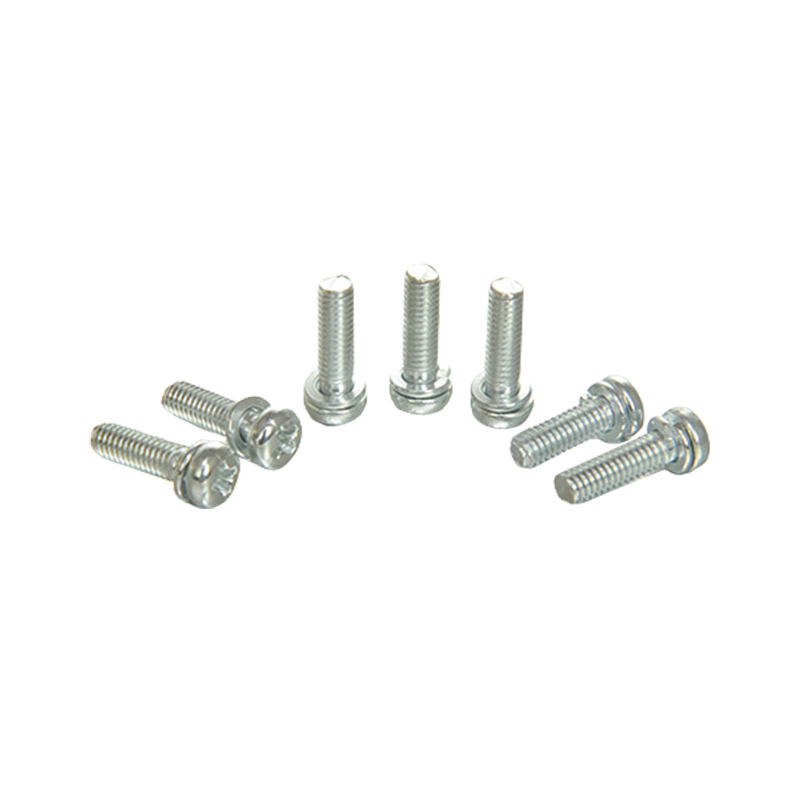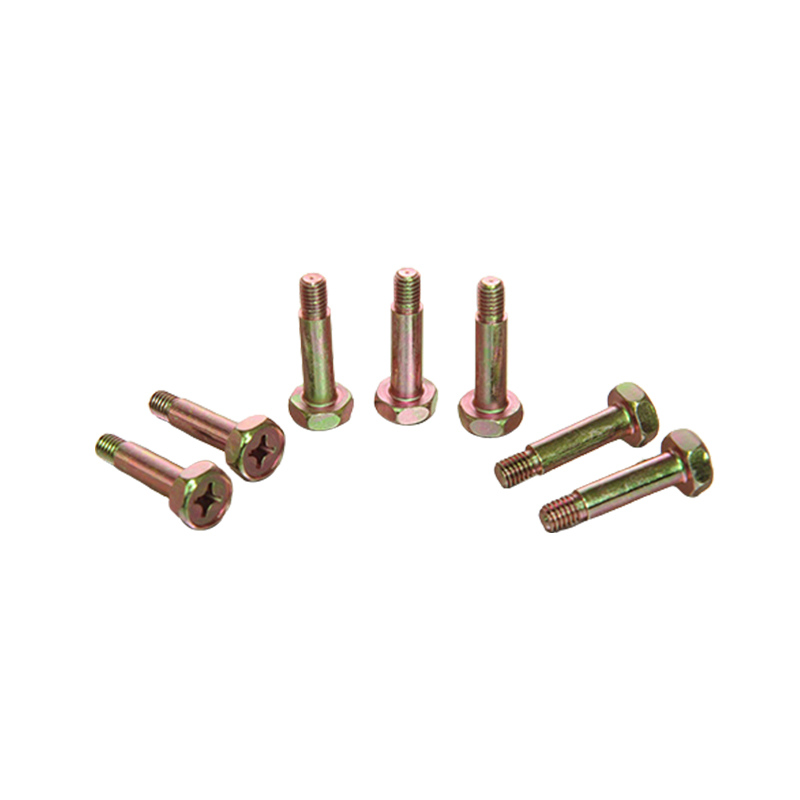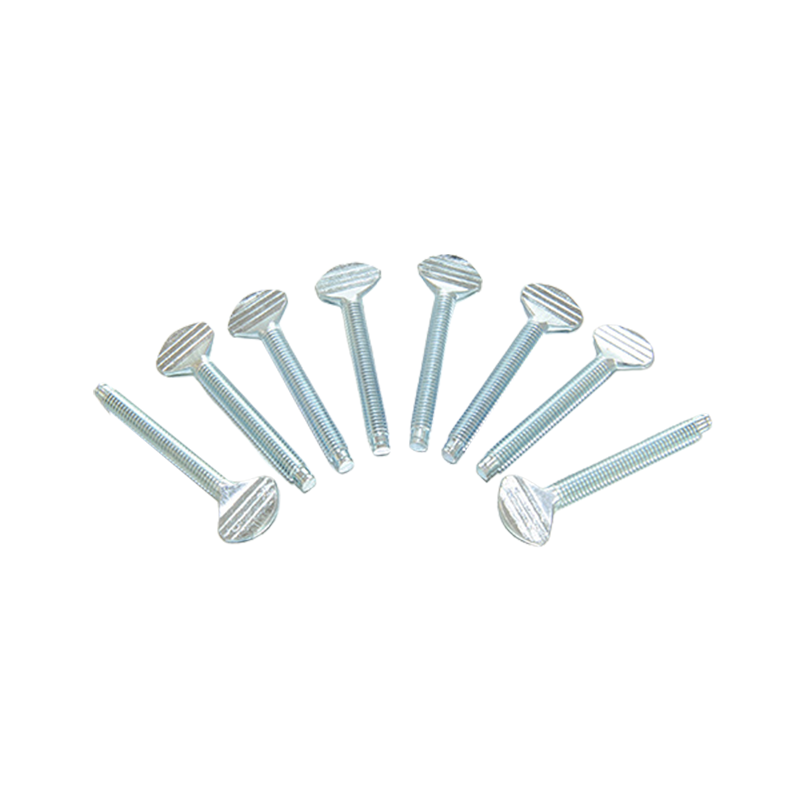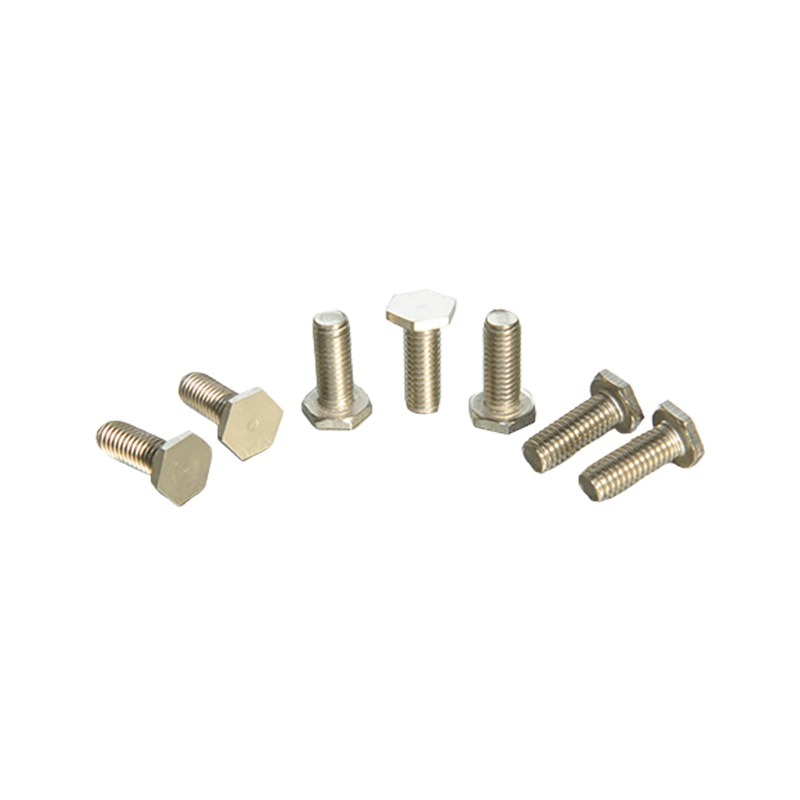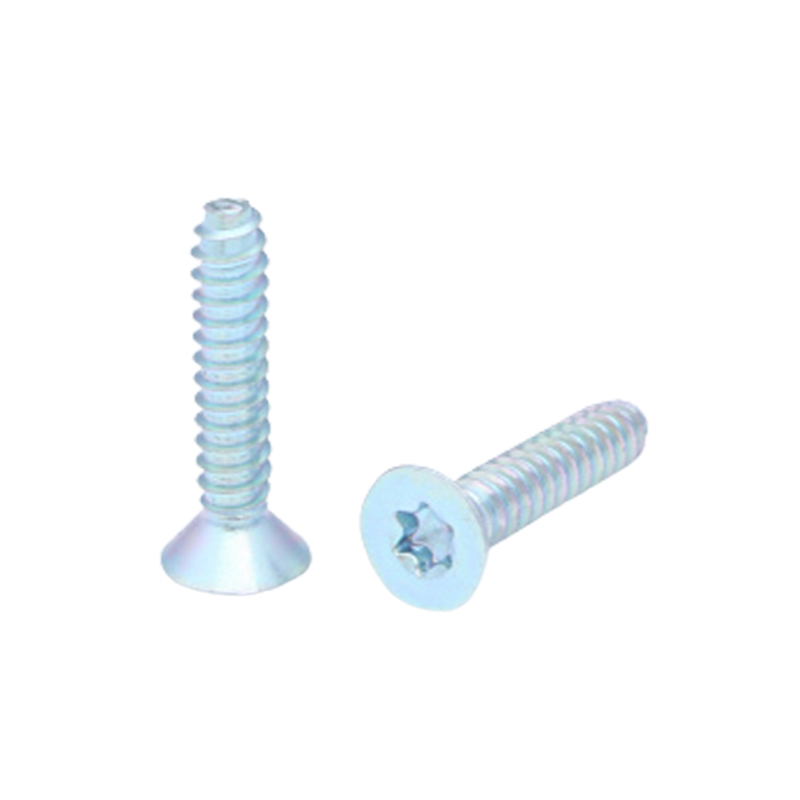The structure and working principle of triangular self-tapping screws
The characteristic is "self-tapping and self-locking"
The most notable feature of triangular self-tapping screws is that the thread has a triangular cross-section and the tooth shape is asymmetrical, which has a certain self-extrusion and self-locking ability. During the screw-in process, it can directly cut out a matching internal thread path in the unthreaded hole, thus eliminating the tapping process.
Difference from traditional self-tapping screws
Compared with traditional circular thread self-tapping screws, triangular self-tapping screws have less friction, lower torque, and tighter bite when screwing in. Its structure is more stable when connecting medium and low strength materials such as plastics and aluminum alloys.
Difficulties in connecting high-strength metal materials
Material hardness increases processing difficulty
High-strength metals usually include high-hardness steel, stainless steel alloys, titanium alloys, etc. These materials themselves have high shear and tensile strength, and are difficult to machine. It is difficult for ordinary self-tapping screws to cut an effective thread path on their surface.
Thermal expansion and contraction and internal stress issues
Metal connections are often affected by temperature changes and internal stress transmission. The connectors must have a certain preload and stability to prevent the connection parts from failing due to thermal strain or fatigue.
Feasibility analysis of triangular tapping screws for high-strength metal connections
1. Material matching
Triangular tapping screws are mostly made of carbon steel or stainless steel. Some products can be hardened by heat treatment, but if their hardness is lower than that of the metal being connected, they may not be able to effectively form a thread path. Therefore, using triangular tapping screws directly on high-strength metals (such as high-carbon steel and hardened steel) often leads to problems such as slippage, screw wear or inability to lock.
2. Screw structural strength
Although triangular threads improve anti-loosening performance, their thread area is smaller than that of standard screws. If used for high-load connections or long-term stress situations, the structural strength may be insufficient, and it is easy to break or slip.
3. Pre-drilling and torque control
If triangular tapping screws must be used in high-strength metals, pre-drilling is usually required, and the matching clearance between the hole diameter and the screw diameter must be precisely controlled. At the same time, tools with torque limitation are required during construction to avoid thread damage.
Typical application scenario analysis
Recommended scenario: thin metal plate component connection
In scenarios where cold-rolled plates or galvanized steel plates are used, such as automotive sheet metal, electronic housings, and air conditioning housings, triangular self-tapping screws can effectively form stable connections, especially suitable for automated assembly processes in mass production.
Not recommended scenarios: thick-walled high-strength structural parts
In high-strength load-bearing structures such as thick steel plates, heat-treated alloys, and pressure vessels, the tensile and shear resistance of triangular self-tapping screws is difficult to meet engineering requirements, and it is more suitable to use welding, riveting, or nuts and bolts for connection.
Alternative solutions and optimization strategies
Alternative connection methods
If triangular self-tapping screws are not suitable for certain high-strength metal connection requirements, the following alternative methods can be considered:
*Use ordinary screws and threaded holes for connection;
*Use stud welding or nut inserts instead;
*Use special thread forming screws (such as rolling screws) to improve cutting efficiency;
*Pre-set threaded holes on the metal surface before assembly.
Product process optimization
For edge application scenarios, the connection performance of triangular self-tapping screws can be improved in the following ways:
*Select high-hardness screw materials;
*Surface nitriding treatment increases hardness and wear resistance;
*Optimize tooth design to reduce penetration resistance;
*Combined with washers, spring sheets, etc. to improve connection stability.
Usage suggestions and precautions
*Evaluate the hardness of the connected metal: When the Brinell hardness of the material exceeds the hardness of the triangular screw, direct use should be avoided.
*Perform sample test assembly: Before formal batch assembly, the torque, screw-in depth and load-bearing capacity of the screw can be verified by proofing.
*Control the installation process: Avoid excessive torque causing thread slippage, cracks or failure of the connector.
*Regularly check the connection firmness: Especially in situations where vibration or temperature changes frequently, maintenance and re-tightening need to be strengthened.


